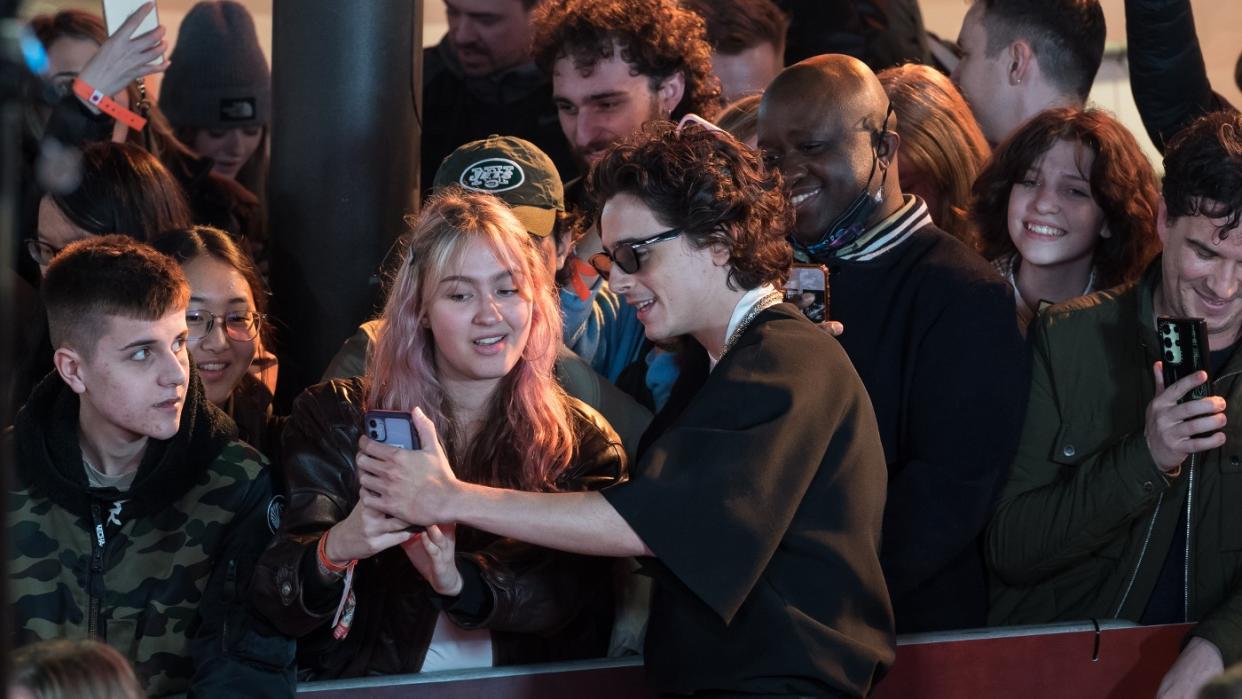A 'deplorable tactic': why film studios are pitting influencers against critics

Film critics are up in arms after their reviews of "Dune: Part 2" were embargoed while social media influencers were encouraged to share their verdicts immediately.
As reviews of films on TikTok – by a clique dubbed "MovieTok" – and other platforms become ever more influential, studios are increasingly prioritising "social sentiment" over newspaper write-ups. The trend has been "evolving over the past few years", wrote Manuela Lazic for The Guardian, and has implications "not only the film criticism profession, but culture at large".
'Treat knowledgeable reviewers with respect'
"My film critic colleagues are steaming from all orifices," said The Times's Richard Morrison, after "influencers, industry hangers-on and general celebrity freeloaders" were allowed to share their verdicts immediately on the new sci-fi sequel, while press writers were muzzled for a week.
Critics should "fight back" against the "deplorable tactic" of putting TikTok reviewers first, Morrison wrote. Newspapers and websites publish "millions of (mostly favourable) words each year about new movies", and "in return the film industry should treat knowledgeable film reviewers with respect, not try to boot them into irrelevance".
Similar tactics caused anger at the London press preview screening of "Barbie" last year, where mainstream media critics "were left feeling censored", said Lazic in The Guardian. "If all discussion of a film's merits before release is left to influencers, whose driving ambition is to receive free merchandise by speaking well of the studio's products", where will "engaging, challenging" and "at least impartial conversation" about cinema take place? And how "is the audience to think critically of what is being sold to it"?
The trend is "aggravating to see", wrote Patrick Sproull for GQ. While critics have "editorial and ethical standards to adhere by", MovieTok is a "comparative Wild West". And TikTok reviewers accepting "large burlap sacks with dollar signs on them" from studios are "simply the useful pawns of publicity departments".
'Democratisation of opinion'
But many on MovieTok think that traditional critics have "false or unearned authority", said The New York Times.
"A lot of us don't trust critics," Bryan Lucious, who has 387,000 followers, told the paper. Pointing to disparities between the scores of casual users of review aggregation site Rotten Tomatoes and those of the "top critics", he argued that the "critical establishment" is "out of touch".
MovieTok influencers regard what they do as "distinct from film criticism", said Sproull on GQ, and "even position themselves as more legitimate than supposedly stale establishment writers", ushering in a "democratisation of opinion".
UK entertainment publicist Amber Muotto told ScreenDaily that influencers are not replacing journalists as such; rather, they are allowing greater coverage of films potentially overlooked by the mainstream media. "I've been in situations where it's like drawing blood from a stone to get journalists to cover [a smaller title]," said Muotto, who specialises in independent films. "When we're not going to get those reviews we were hoping for, we have to pivot to influencers to fill those gaps."
But traditional media critics are unconvinced. "Giving social media sycophants a head-start to influence public debate" does "nothing to nurture film as a grown-up art form", wrote The Times's Morrison.


